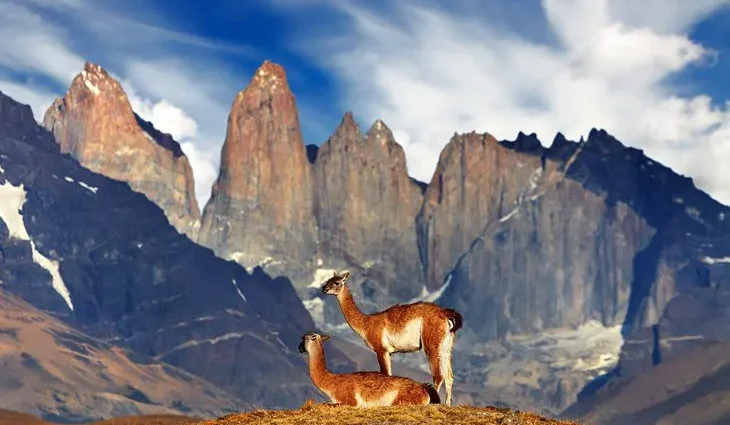Contents
- 1. The W Trek
- 2. The O Circuit
- 3. Cochamó Valley Trek
- 4. Valle de la Luna Day Hike
- 5. Cerro Castillo Circuit
- 6. Dientes Circuit
- 7. Villarrica Volcano Hike
- 8. Robinson Crusoe Island Trail
- 9. The Mirador Trail of Pan de Azúcar
- 10. The Ice Hike on Exploradores Glacier
- 11. The Hanging Glacier Moraine Trail
- 12. El Morado Glacier Trek
- 13. Siete Tazas Day Hike
- Map of Hikes and Treks in Chile
Look at any map of South America, and Chile will surely stand out for its string bean shape. Not only is it among the longest countries in the world at 4,329 kilometers from north to south, but it averages just 177 kilometers in width. It’s also one of the most isolated countries on the planet, as the Pacific Ocean forms its western border, and the towering Andes separate it from Argentina to the east.
Meanwhile, the Atacama in the far north is the driest desert in the world, while the far south is a patchwork of Patagonian fjords and glacier-carved valleys. This unique geography makes Chile a feast for the eyes and an all-around hiker’s paradise, with some of the best day hikes and multi-day treks in South America.
Discover where to go with our list of the best hikes hike in Chile.
1. The W Trek
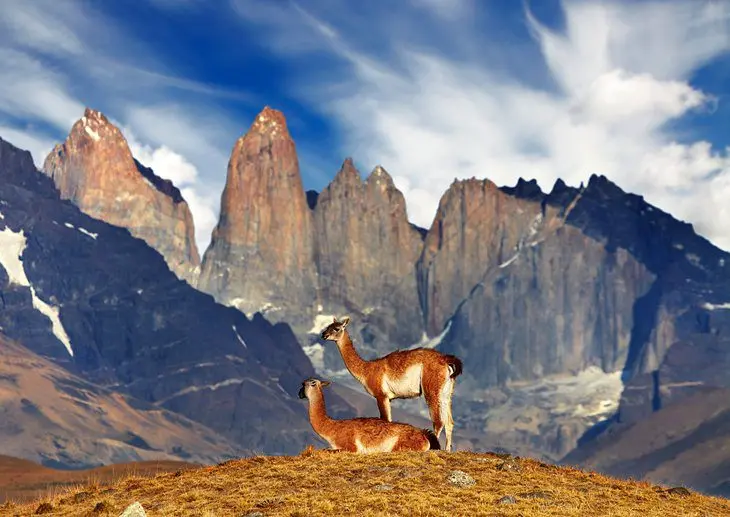
If there is one hike that has come to symbolize Chile’s spectacular backcountry, it’s the five-day, four-night W Trek through Torres Del Paine National Park. By far the most popular hike in all of Patagonia, this 71-kilometer route is a tranquil and breathtaking romp through some of Patagonia’s biggest highlights from the soaring granite spires of Paine Grande to the horn-like rocks of Los Cuernos. You’ll also walk past the massive Glacier Grey (part of the Patagonian Ice Field), dip into the glacier-lined French Valley, and camp along the turquoise waters of the park’s glacier-fed lakes.
To begin the W Trek, you can either take a ferry across Grey Lake to Refugio Grey or take a bus to Refugio Las Torres. You can also choose how luxurious you want the experience to be by staying along the route in your own tent, in pre-pitched tents, in a refugio, or even in your own room with a three-course meal (at some stops, though not all).
Don’t want to carry your own gear or have higher standards than sleeping in a tent or rustic refugio? Many people choose more luxurious options that still allow you to experience the best of the W Trek but include guides and stays at spectacular lodges and eco-yurts. Many of these operators offer excursions to glacier walks and kayaking if conditions permit.
Be prepared during the hike for strong winds and quick changes in weather that may delay your exit for a day or two. The trail is busy with backpackers at the height of summer, January through February; consider a trip in March or April (Patagonia’s fall) when the winds are lighter, the trails less busy, and temperatures still very reasonable.
2. The O Circuit
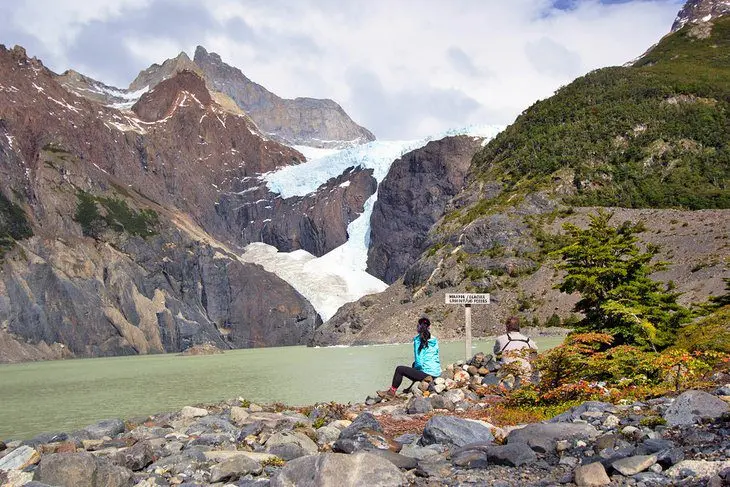
The O Circuit is the full bore Patagonian hiking experience that adds an additional 50 kilometers to the W Trek. It’s an amazing trail because not only do you get all the best parts of the W Trek, you also get to tour the more remote parts of Patagonia with sights that few other people see.
The O Circuit is a nine- to 11-day trip and runs in a counter-clockwise direction starting from Laguna Amarga. The trail has a daily limit of 80 people, so finding peace and solitude is rarely a problem.
Highlights along the O Circuit specifically include the spectacular view from Campamento Los Perros, Dickson Lake, the Perros Glacier, and the stunning beautiful Patagonian steppes along the Rio Paine.
Accommodation on the more remote portion of this trip is only in specified campgrounds and refugios.
3. Cochamó Valley Trek
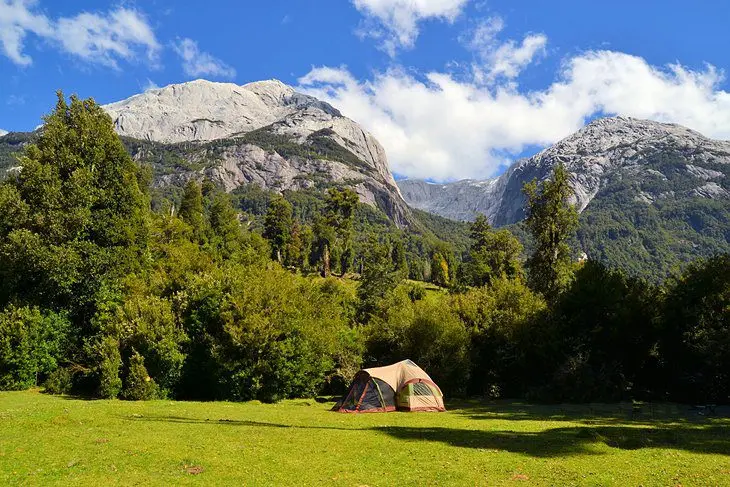
With its granite domes and dazzling waterfalls, Cochamó Valley has garnered a reputation as “the Yosemite of Chile.” To reach it, you’ll have to take a 10-kilometer cowboy trail that looks much the same today as when a pair of American bank robbers on the run – Butch Cassidy and the Sundance Kid – passed through these Andean hills more than a century ago.
Begin this muddy hike from the small town of Cochamó and plan for a full six-hour day of trekking to reach the remote outpost of La Junta, with refugios and campsites, your base for exploring the valley. Many visitors stay several days in La Junta to tackle the numerous hikes and mountain climbing routes up the granite domes.
If you want to rest here in cozier surrounds, the owner-run Hotel Espacio y Tiempo is an excellent choice, with hearty home-cooked meals. When it’s time to go, you can either retrace your steps back to Cochamó or backpack onward for two more nights to the Argentina border at Paso El León.
4. Valle de la Luna Day Hike
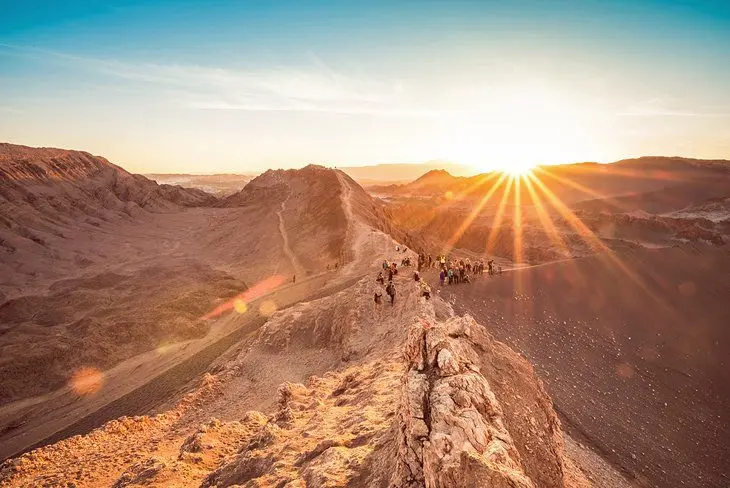
Most natural attractions in the Atacama Desert of northern Chile involve long drives into the high-altitude Altiplano and short walks once you arrive. However, Valle de la Luna is a great spot not far from the tourist hub of San Pedro, where you can do some superb day hikes, like the five-kilometer trek that begins at Tres Marias, a trio of gnarled rocks.
You’ll set off toward the Great Dune, following a route right across the Salt Mountain Range through a number of other geologically bizarre formations. The trail isn’t terribly well marked, so many tourists visit on a guided tour from San Pedro. Most tours depart in the early evening to arrive in Valle de la Luna in time to watch the sun set. If you want to stay overnight in San Pedro, Casa Solcor Boutique Bed & Breakfast offers comfy beds and a small pool, where you can cool off after a dusty hike.
5. Cerro Castillo Circuit
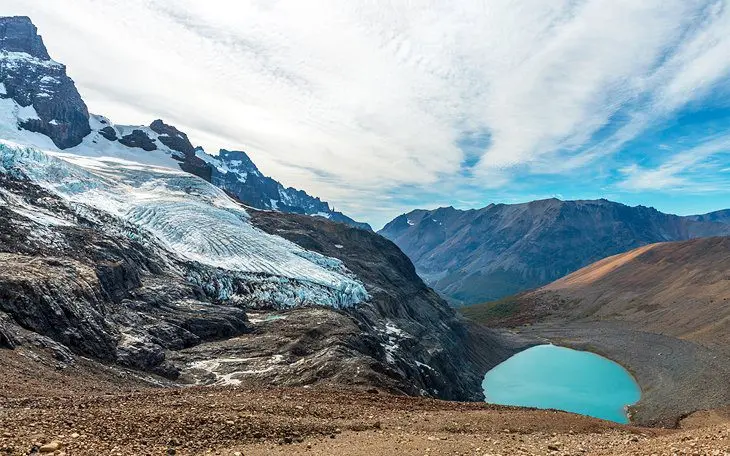
Dubbed “the next W Trek,” this lesser trafficked circuit trail (about an hour away from the airport in Balmaceda) is the perfect choice for backpackers looking for a multi-day hike that’s off the beaten path. The four-day, 43-kilometer journey through Cerro Castillo National Reserve takes you around the castle-like spires of the park’s namesake mountain.
Your reward for this arduous journey is views of glistening glaciers, turquoise lagoons, and (if you’re lucky) the endangered huemul deer. Be prepared, however, for technical mountain passes, tricky stream crossings, and hikes over loose scree. If you aren’t up for doing the trek on your own, guides are available in the service village of Villa Cerro Castillo and in the regional capital of Coyhaique about 1.5 hours away.
6. Dientes Circuit
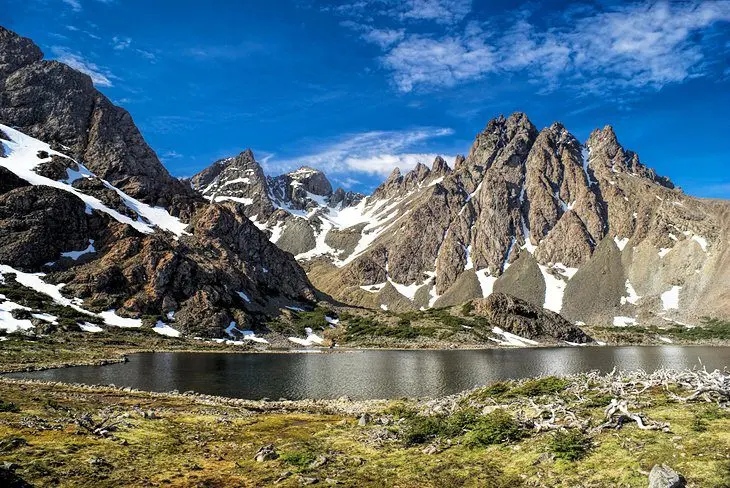
Need a trip to one-up your hiking buddies? The southernmost multi-day trek in the world should fit the bill! The five-day, 53-kilometer Dientes Circuit wanders through the rugged and wind-blown backcountry of Isla Navarino, right where the Andes crumble into the Arctic Plate. Along the way, you’ll trek through four stark mountain passes and a handful of scenic river valleys (many of which are dammed with beaver ponds) to some spectacular overlooks with views over the Drake Passage and Cape Horn.
Take a ferry from Punta Arenas (or Ushuaia, Argentina) to Puerto Williams, the southernmost town in the world, to begin your hike. Conditions can be quite extreme, and a professional guide is strongly recommended. Not far from Puerto Williams, Lakutaia Lodge welcomes hikers with friendly guides and good food.
7. Villarrica Volcano Hike
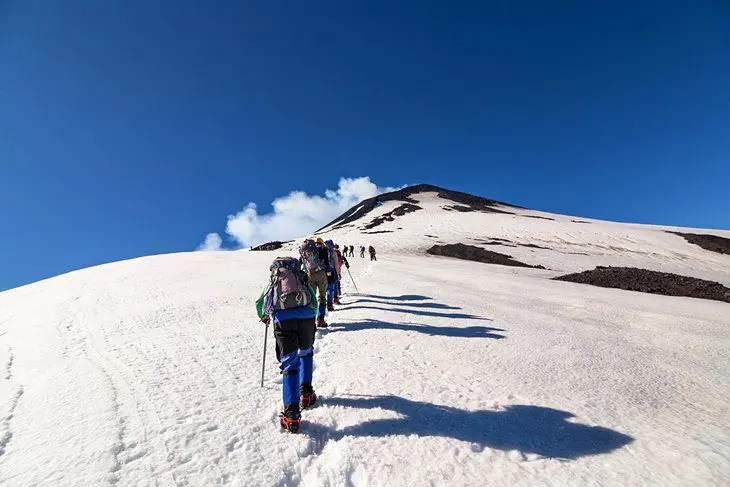
Climbing the quite active Villarrica Volcano is the must-do adventure activity in Chile’s stunning Lakes and Volcanoes District. You don’t need any prior mountaineering experience, but you will need a professional guide. Book with a travel outfit, in the lakeside resort of Pucón, who can set you up with crampons, ice axes, helmets, and all the gear you’ll need to climb its snowy peak and view its smoking crater.
Most trips leave before dawn in order to allot enough time to summit and return to Pucón by nightfall. If you’ve never hiked up a volcano before, take comfort in knowing that you’ll join 15,000 others who safely make the journey atop Villarrica each year.
8. Robinson Crusoe Island Trail
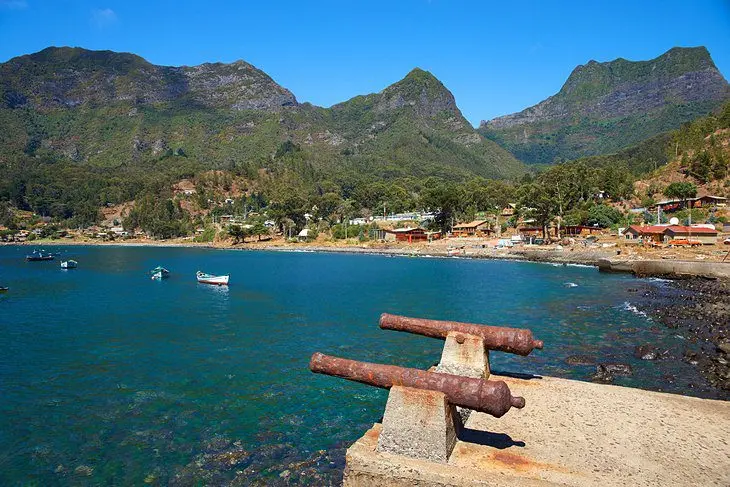
Few people realize that the fictional story of Robinson Crusoe is actually based on the experiences of a real-life castaway: Alexander Selkirk. A Scottish privateer and Royal Navy officer, he spent more than four years marooned on an uninhabited island off the coast of Chile in the South Pacific. That island, part of the Juan Fernández Archipelago, is now home to about 800 Chileans who all live in the tiny hamlet of San Juan Bautista.
Follow in the footsteps of the real-life Robinson Crusoe on Robinson Crusoe Island by trekking the 13-kilometer route from the airstrip to town (note: you can send your luggage on the boat that most visitors take upon arrival). On the hike, you’ll pass through a biologically unique landscape replete with more than 100 endemic plant species. You’ll also pass noisy colonies of fur seals and fluttering Juan Fernández hummingbirds.
9. The Mirador Trail of Pan de Azúcar
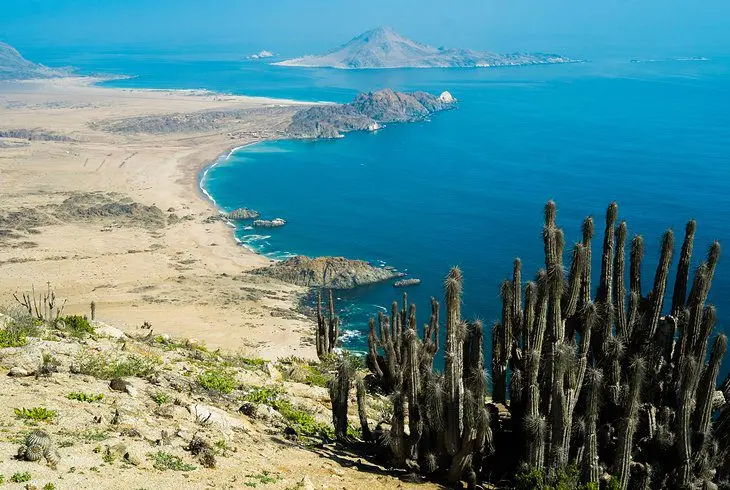
Wild surfing beaches, oceanfront campsites, and waddling Humboldt penguins are the main attractions luring visitors to Pan de Azúcar National Park. To get the best overview of this little-known corner of the Atacama Desert, take the nine-kilometer Mirador Trail, which departs from the tiny fishing hamlet of Caleta Pan de Azúcar.
This relatively easy day hike passes prickly cacti, ambling guanaco, and the occasional desert fox en route to a lookout with soaring views over the rugged coastline. The entire area boasts a great deal of coastal vegetation thanks to the camanchaca (sea mist) that rolls in from the Pacific.
10. The Ice Hike on Exploradores Glacier
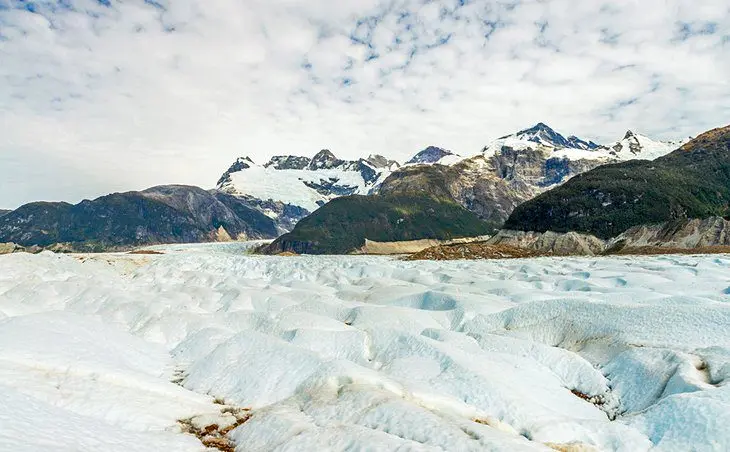
Amble through a massive kingdom of blue ice on a guided trek through the Exploradores Glacier in Chilean Patagonia. This remarkable sight is part of the Patagonian Ice Field, the world’s third largest source of fresh water after Antarctica and Greenland.
All trips onto the ice involve a 1.5-hour ride in from the tourist town of Puerto Rio Tranquilo through a scenic river valley, followed by a seven-hour hike on the ice with crampons. Routes through the crevices and caves of this sprawling glacier inevitably change with time as the ice slowly inches downhill from its perch in the Andes.
11. The Hanging Glacier Moraine Trail
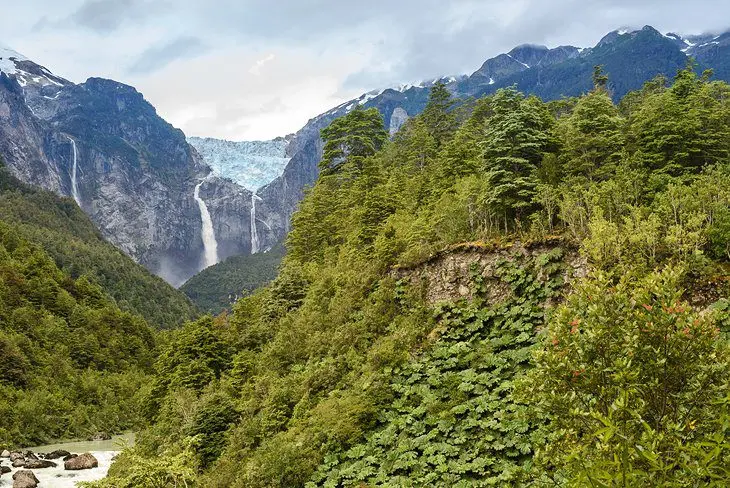
Ventisquero Colgante, or “the Hanging Glacier,” is the star attraction of Queulat National Park in Chile’s underappreciated Aysen Region. To get the best view of it, hike the six kilometers out-and-back Moraine Trail, which begins at the visitor center and continues on the far side of a rickety hanging bridge nearby. You’ll get views of the Puyuhuapi Fjord and the milky green Tempanos Lagoon before the hanging glacier finally comes into clear view.
This glacier reached out to the sea just over a century ago but, as its name suggests, has now receded to a point where it’s hanging on the edge of a cliff, releasing its frigid meltwater in cascading waterfalls.
12. El Morado Glacier Trek
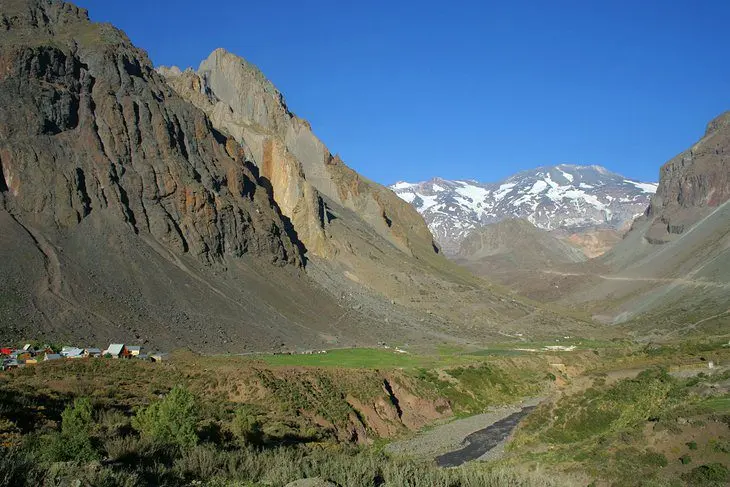
If your trip to Chile doesn’t allow for much time beyond the capital, your best bet for a memorable day-hike near Santiago is Cajon del Maipo. And if you’re dying to see a glacier, look no further than the El Morado Glacier Trek near the small hamlet of Baños Morales.
This eight-kilometer trail takes you deep into an Andean bowl (with peaks over 5,000 meters) and puts you right up along the edge of the San Francisco Glacier. Hike back down to the town of Baños Morales, and you can rest your weary bones in its scenic hot springs. Note that if you arrive in the winter, you do the trail in snowshoes.
13. Siete Tazas Day Hike
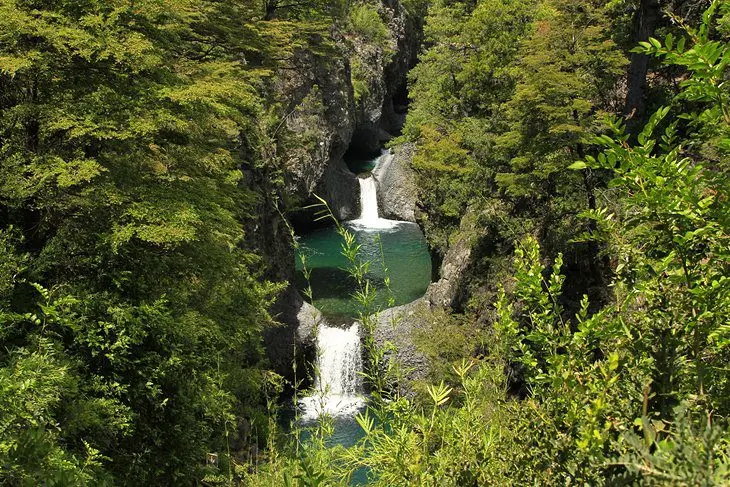
Siete Tazas is a surprising, lush oasis in an otherwise dry corner of Central Chile with seven “cups” of crystal clear water cascading through a narrow gorge. To see the cups, you’ll need to walk through evergreen forests along the upper basin of the Rio Claro on an easy four-kilometer day hike from the trailhead near visitor parking.
You can split the journey up with stops to take a dip in the pozas (swimming holes) upriver or test the thickness of your skin in the frigid waters beneath the dazzling La Leona Waterfall at the trail’s end.










